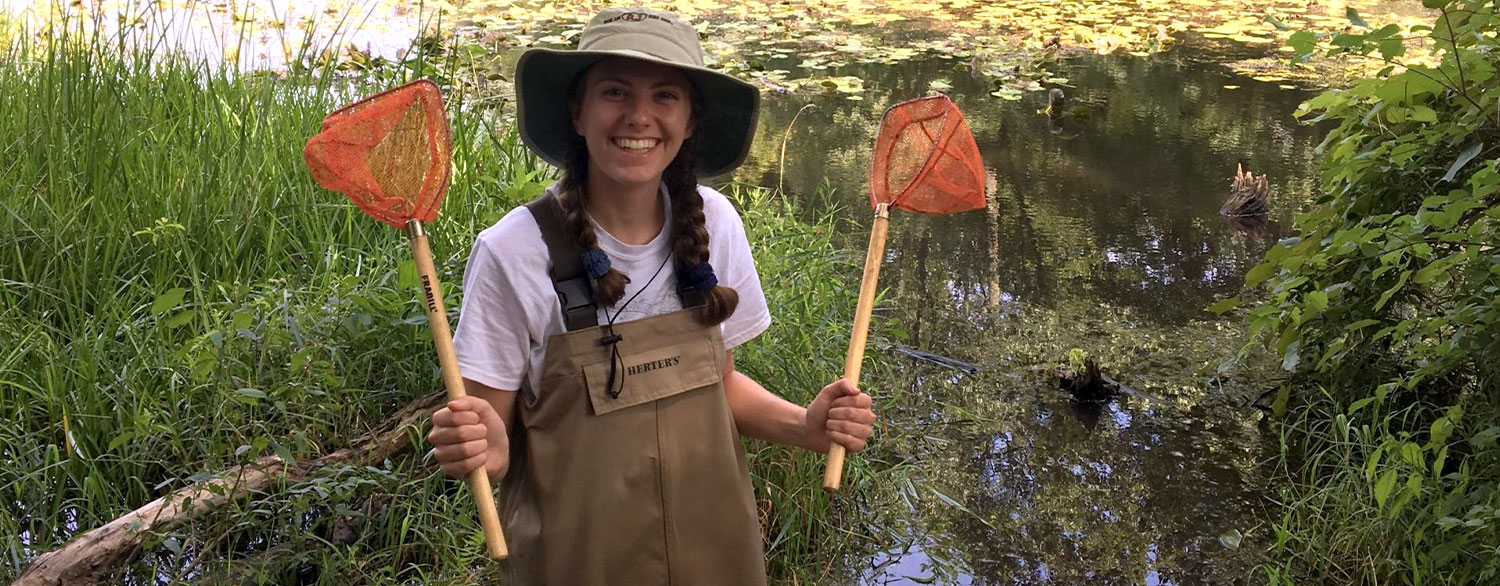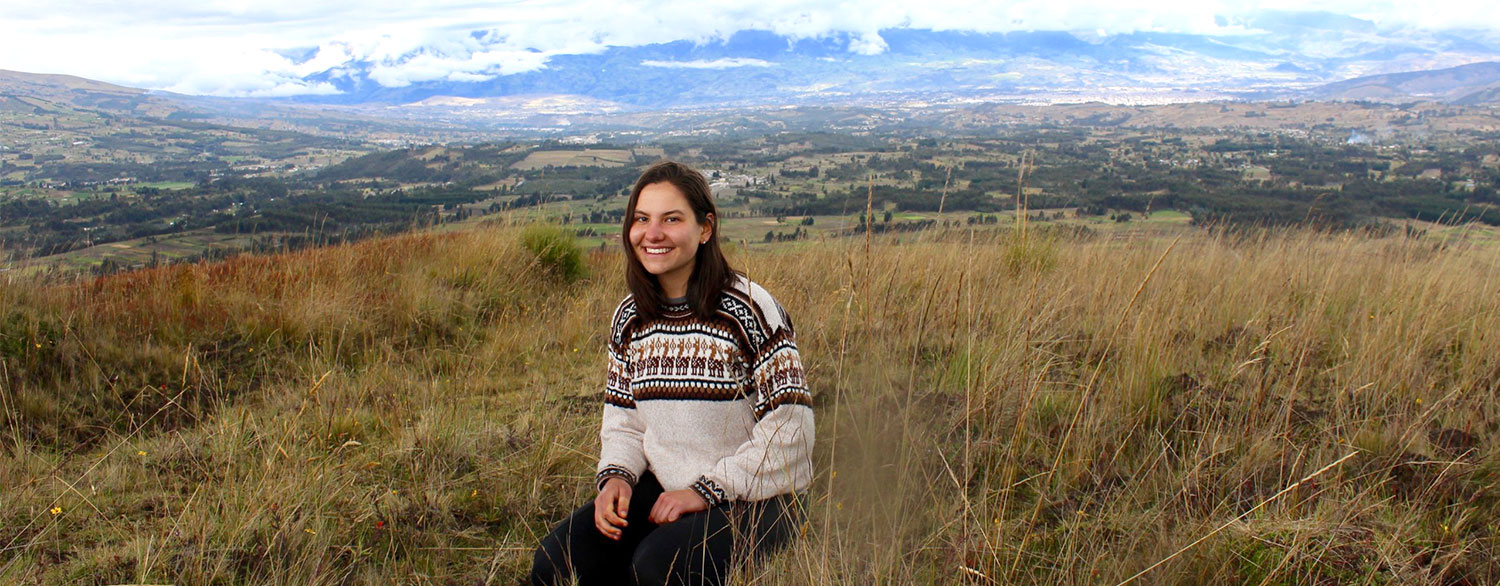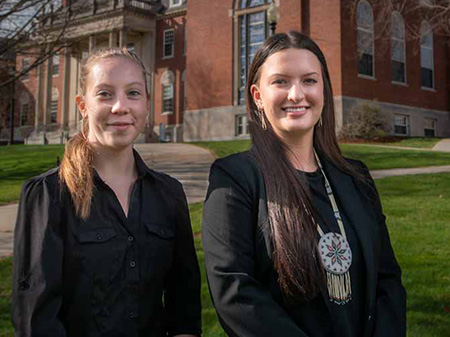 Maggie ENVS and Journalism, Class of 2022
Maggie ENVS and Journalism, Class of 2022 Megan ENVS, Class of 2019
Megan ENVS, Class of 2019 Lauren EVST and ECON, Class of 2021
Lauren EVST and ECON, Class of 2021 Emily EVST and Sociology, CLAS of 2021
Emily EVST and Sociology, CLAS of 2021 Colin (EVST '16)
Colin (EVST '16)
Welcome to Environmental Studies at UConn
The Environmental Studies major is an interdisciplinary program designed to provide students with the knowledge, skills, and perspectives needed to understand the interactions between human societies and their environments. Understanding the ethical and cultural dimensions of our relationship with the environment, as well as the challenges of protecting it, requires insights from multiple perspectives, including the humanities, the social sciences, and the natural sciences. read more...
“You never change things by fighting the existing reality.
To change something, build a new model that makes the existing model obsolete.”
- Buckminster Fuller
Students and Alumni

Truman Scholars
Sena Wazer &
Sage Phillips
A First for UConn: Two Students Named Truman Scholars for 2021. (Sean Flynn/UConn Photo)

Rhodes Scholar
Wanjiku Gatheru
Wanjiku (Wawa) Gatheru ’20 (CAHNR) is the first Rhodes Scholar in UConn's 138-year history! (Sean Flynn/UConn Photo)

Activist
Sena Wazer
Sena Wazer was recently interviewed by the Hartford Courant on her views on environmental policy. (Kassi Jackson/Hartford Courant photo)

More Highlights
Students & Alumni
News and Upcoming Events
Virtual book launch
View the virtual book launch of Global Im-Possibilities: Exploring the Paradoxes of Just Sustainabilities, which has just been published by Bloomsbury (the bookwebpage is here: https://www.bloomsbury.com/us/global-impossibilities-9781786999542/). This event features Dr. Julian Agyeman, the originator of the “just sustainabilities” framework, as well as five authors from the edited volume speaking about their case studies. The co-editors of […]
UConn Ranked #8 as One of the World’s Most Sustainable Campuses
UConn has been ranked #8 by the Sierra Club in their “Cool Schools” list this year, which places UConn as one of the world’s most sustainable campuses. See the UConn Today Article and the Sierra Club magazine article to read about the impressive measures UConn has taken and goals that we have set in environmental […]
Youth Environmental Conservation and Action
UConn students are depicting youth environmental conservation and action throughout the Northeast A group of UConn students spent their summer creating a short documentary film and photography project that focuses on youth environmental conservation and action throughout the northeastern United States. Watch video. https://today.uconn.edu/2021/07/youth-environmental-conservation-and-action/
UConn Phi Beta Kappa (PKB) Chapter Inductees
Congratulations to this year’s Environmental Studies UConn Phi Beta Kappa (PKB) chapter inductees: Kelly-Anne Moffa, Elaine Nguyen, Lauren Ann Pawlowski, and Sarah Nicole Schechter. PKB is an academic honor society for liberal arts and sciences students, and admits individuals based on a review of coursework and academic achievement. The full video of the induction ceremony […]
World Wildlife Fund summer 2021 virtual internships!
World Wildlife Fund summer 2021 virtual internships! Our team will be posting 30 open positions to our Careers page. We have paid internships supporting both business and conservation departments at WWF. These include Communications, Human Resources, Finance, Policy, Forests, Oceans, Climate, Wildlife, and more! Internships will pay $15/hour for an 8-week full-time position, starting at the […]
8-month Paid NRCA Difference Maker Mentor Opportunity
Want to be a mentor to teens as they carry out a community conservation project & gain environmental education experience? Become a Difference Maker Mentor with UConn’s Natural Resources Conservation Academy (NRCA)! Here are some quick details about the positions: We are seeking undergraduate students for paid 8-month (June- March) Difference Maker Mentor positions to primarily assist with the NRCA Conservation […]